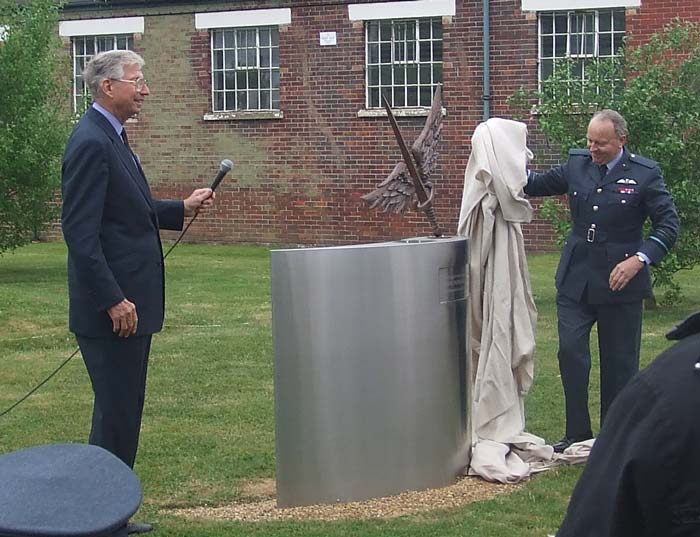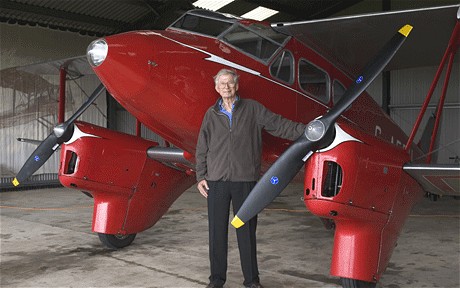Torquil Norman is of course part of a family that has been a backbone of the history of 601 Squadron. I’ve had the very great pleasure of meeting him, and a nicer gentleman you could not find. Nor a more unassuming person. His title seems to almost embarrass him, but it could not be more deserving. A true humanitarian and wonderful human being. But his unassuming nature has meant that I have had to rely on what I can find on the Internet as he never provided anything about his own service nor career.
Sir Torquil Patrick Alexander Norman CBE (born 11 April 1933) is a British businessman, aircraft enthusiast, and arts philanthropist.
Sir Torquil is the youngest of three sons born to Air Commodore Sir Nigel Norman, 2nd Baronet, and Patrician Moyra Annesley, daughter of Lt. Col. James Howard Adolphus Annesley. His father, the only child of journalist and politician Henry Norman, and novelist Ménie Muriel Dowie, was killed in action in 1943, shortly before Torquil’s 10th birthday. His eldest brother, Sir Mark Annesley Norman, inherited the baronetcy and the middle brother Desmond Norman was an aviation pioneer.
He was educated at Eton College, Harvard University and Trinity College, Cambridge.
Standing 6’7″, Norman gained his pilot’s licence at eighteen, and did his National Service in the Fleet Air Arm. After he left, he bought a Piper Comanche, flew in No. 601 Squadron RAF, and took up skydiving.
After working as an investment banker in the United States for eleven years, Norman returned to the UK in the 1960s and subsequently entered the toymaking industry, first as chief executive of Berwick Timpo toy company from 1973. In 1980, he founded Bluebird Toys, makers of the Big Yellow Teapot House, the Big Red Fun Bus, and the successful Polly Pocket line of dolls.
A long-term Camden resident, Norman bought the derelict Roundhouse arts venue in Chalk Farm for £3 million in 1996 “as an impulse buy”, having read it was proposed to turn it into an architectural museum. As founder and chairman of the Roundhouse Trust he then raised £27 million from public and private sources, including almost £4 million more of his own personal funds, to restore the crumbling Victorian former railway repair shed, which had been a major arts venue in the 1960s and ’70s. The restored Roundhouse reopened in June 2006 as a 1,700 seat performance space, with a state-of-the-art creative centre for young people in the undercroft, and a new wing with a purpose-built bar and café. It was soon the base for a major season by the Royal Shakespeare Company, played host to regular big-name rock concerts, and by 2008 had involved over 12,000 teenagers in creative arts projects.[8]
Norman, who was previously appointed CBE, stepped down as chairman of the Roundhouse Trust in 2007, and was knighted the same year for his “services to the arts and to disadvantaged young people”. In 2007 he won the Beacon Fellowship Prize for his work with young people through the Roundhouse Trust.
A collector of classic aeroplanes, Norman wrote a vivid account of flying a DH Leopard Moth across the Atlantic. In 1995 Norman and Henry Labouchère undertook a long distance flight in a light aircraft, culminating in their East-West trans-Atlantic flight in a (then) 59-year-old De Havilland Dragonfly, with both of them being awarded the Certificate of Merit by the Royal Aero Club.
On 8 July 1961, Norman married Lady Elizabeth Ann Montagu, the daughter of Victor Montagu, 10th Earl of Sandwich. They have five children, including Conservative Party MP Jesse Norman, the artist Amy Sharrocks, and ten grandchildren.

